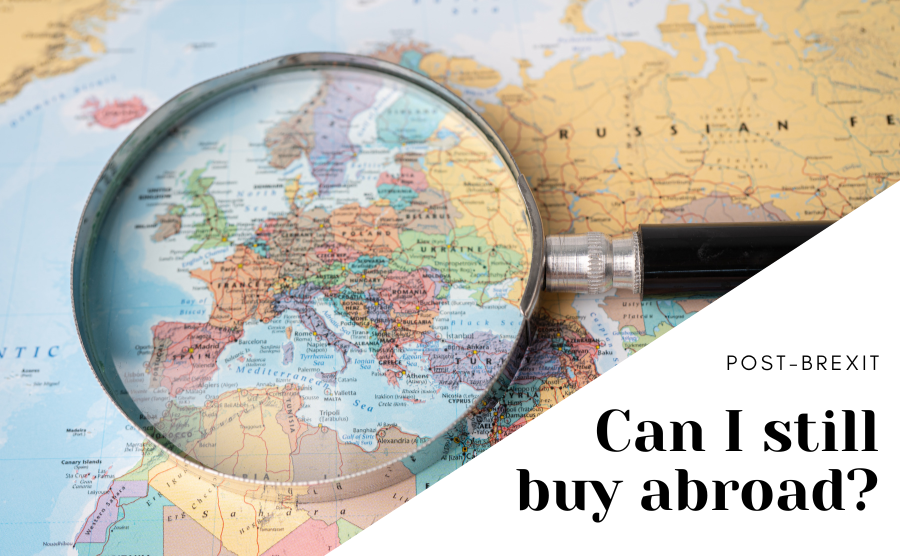When the UK vote to leave the European Union nearly seven years ago, many people worried that it would mean the end of their overseas home dreams. In fact, buying property overseas after Brexit is not just possible, but simple. The question is, how long can you live in it?
The United Kingdom voted to leave the European Union in 2016. Since then, Brexit deals have been argued over, worked out, argued over again, but generally now resolved. For property buyers there are two issues. Can you buy property in Europe since Brexit, and how can you use it?
Buying property in Europe after Brexit
This question is easy to clear up. Buying property in Europe has been largely unaffected by Brexit. Just like Americans, Australians and many other ‘third country nationals’, the British can buy property in all of our favourite EU countries – and most other countries too – just like the locals.
Unfortunately, the pound-to-euro exchange rate fell by around 15% after the Brexit referendum and has never really recovered. Hence you will pay a little more in pounds for the same euro-priced property than in 2015.
There may also be some issues around more technical matters such as getting a mortgage, or if you wish to rent out your property. We advise that you seek independent legal advice on such questions before making any financial commitment.
How long can you stay without a visa?
The right to free movement in the 26 countries of the Schengen Area was scrapped for British citizens when the UK formally left the EU. (Ireland is within the EU but has a pre-EU agreement called the Common Travel Area that allows for UK and Irish citizens to live visa-free in each other’s countries.)
Non-EU citizens are free to live within the Schengen zone for up to 90 days in every 180 without a visa. It’s known as the “90-day rule”. This is a rolling period which starts from the day you enter a Schengen country. Should you want to stay any longer than that, you’ll need to apply for a visa or permit, depending on the country.
UPDATE: Brits in France recently won the right to stay in France for up to six months. Read the latest here.
You may have noticed how assiduously the airport authorities stamp your passport these days.
This is particularly key for holiday homeowners from the UK. You are able to own and visit your holiday home abroad under the 90-day rule, but cannot exceed 90 days in every 180. You may have noticed how assiduously the airport authorities stamp your passport these days. That will soon be backed up by the ETIAS, the EU visa-free travel authority.
It’s important you take into consideration your travel to and from your holiday home, as if you’re travelling through Schengen areas, the days it takes to get home will still count towards your 90/180.
Moving overseas permanently
If you wish to pack up and leave the UK, and reside elsewhere full time, you will need a visa. Procedures vary from counry to country, but in general you will have to apply for the appropriate visa from the country’s consulate in London, Edinburgh or Belfast.
You can read about the visa options for each country on their government websites or find easy-to-follow guides on Property Guides. The main sticking point has been the legal right to work.
Retiring overseas
This is usually the easier version. Most countries in the EU offer what is known as a ‘non-lucrative’ visa, or retirement visa. You will need to demonstrate that you have sufficient income to live there without working. How much that is varies between as much as €25,000 or so in Spain, to little over €7,000 in Portugal or France.
You will also need to show that you are of good character and possibly pass a medical test for communicable diseases such as HIV. However, it does vary between countries. Contact an immigration specialist early in your plans to ensure it is feasible. The good news is that the EU is much easier to retire to than countries such as the USA, Australia or New Zealand.
Working overseas
This tends to be harder within EU countries but is certainly possible. Most countries wish their own citzens to have the pick of the best jobs, but if you can find an employer to sponsor you and make the case for you to take the job, it can be achievable. There is also the European Blue Card to consider.
Other options include the golden visa, where you buy a property over a certain amount and receive a visa allowing you to work there. These have being phased out in some countries (notably Cyprus and Portugal) but remain an option in Greece, Spain, Malta and others.
Digital nomad visa
It’s a fact that many countries want digitally knowledgable people there, hence the digital nomad visas springing up around the world. These are operational in Croatia, Cyprus, Greece, Italy, Portugal, Spain and elsewhere in Europe, and may even be coming to the UK.
In cities like Lisbon, Athens and Berlin you will find shared workspace hubs where an international, English-speaking clientele of young, or young-ish, people link up while working either for companies based in their home countries, or freelance.

A digital nomad hub
If you’re employed by a British company and desire to work overseas, your company must permit remote working and you need to have it in writing from your employer that this is allowed.
As you can see, there are plenty of opportunities not just for buying property overseas after Brexit, but for working in the EU too. For more information about buying property in Europe after Brexit, as well as many other aspects of buying or moving overseas, check out Your Overseas Home’s series of webinars.





















